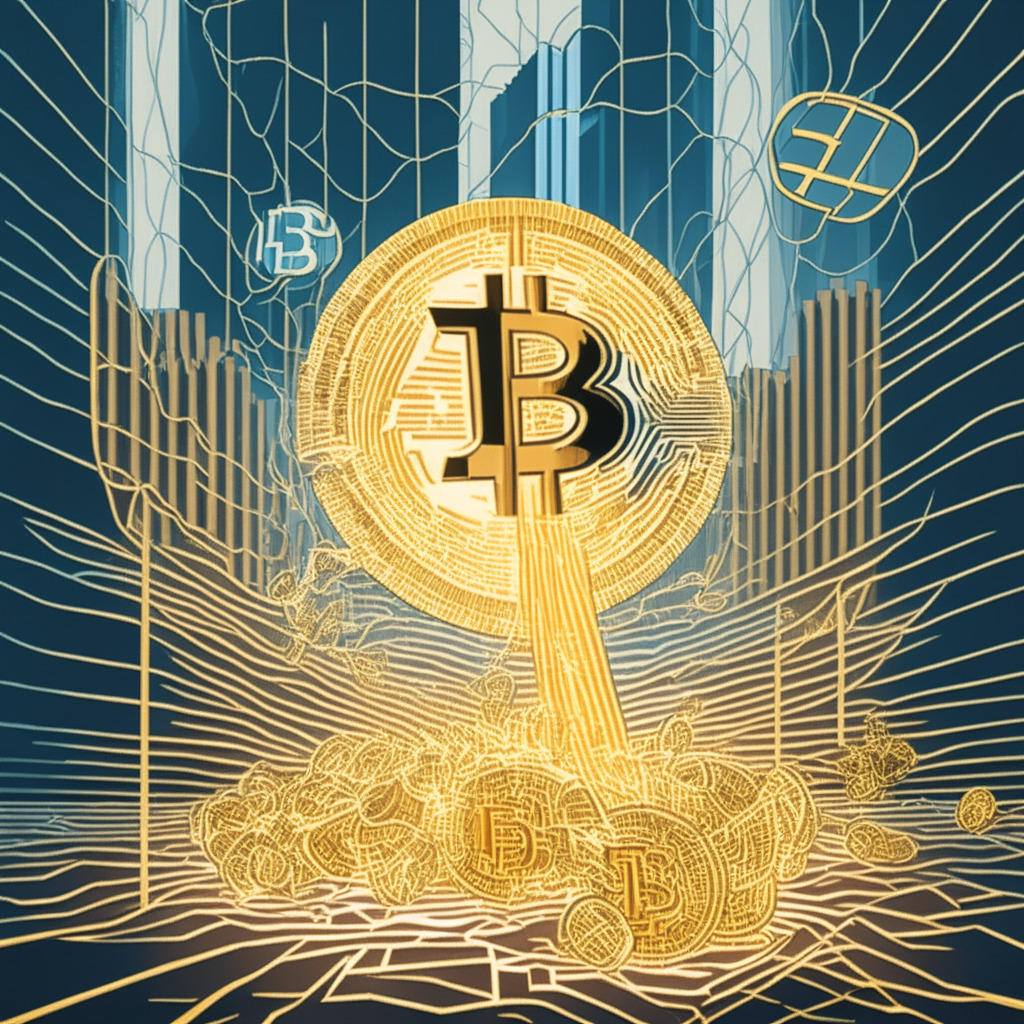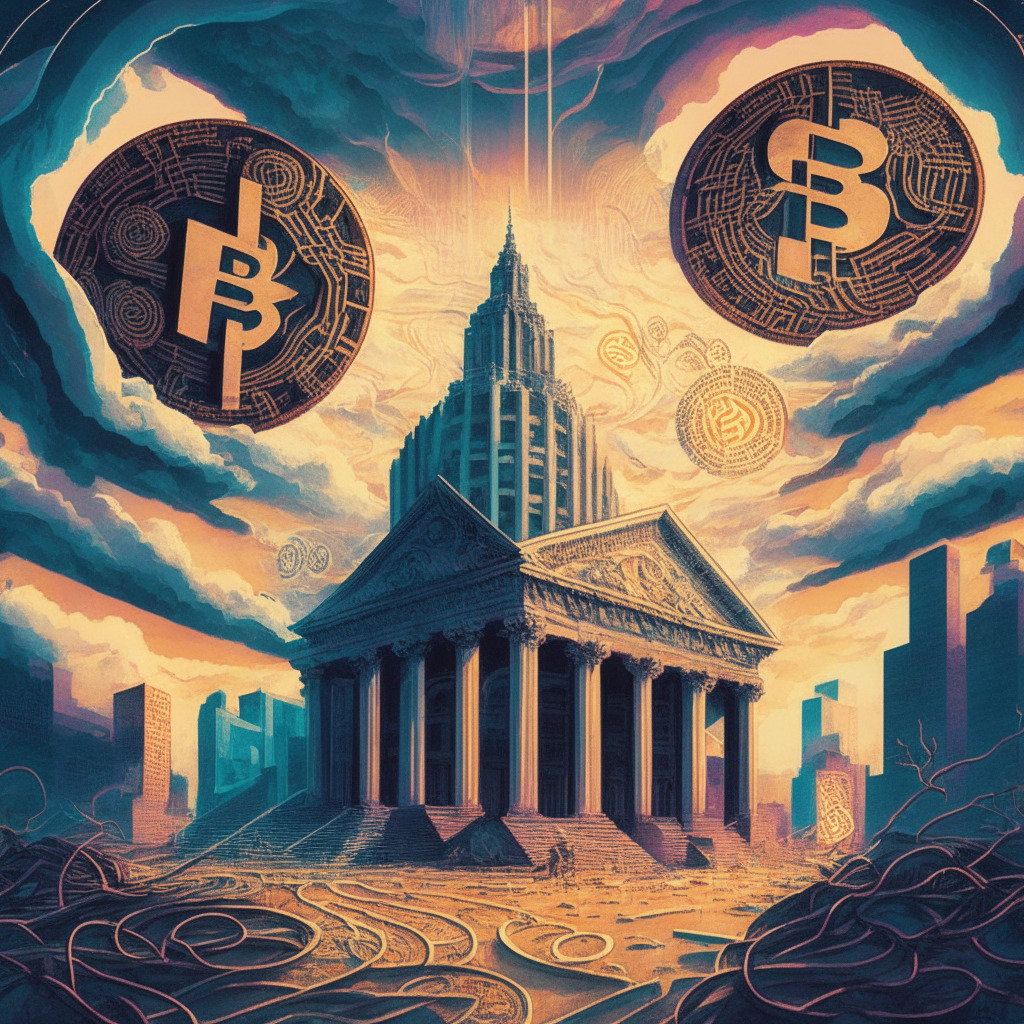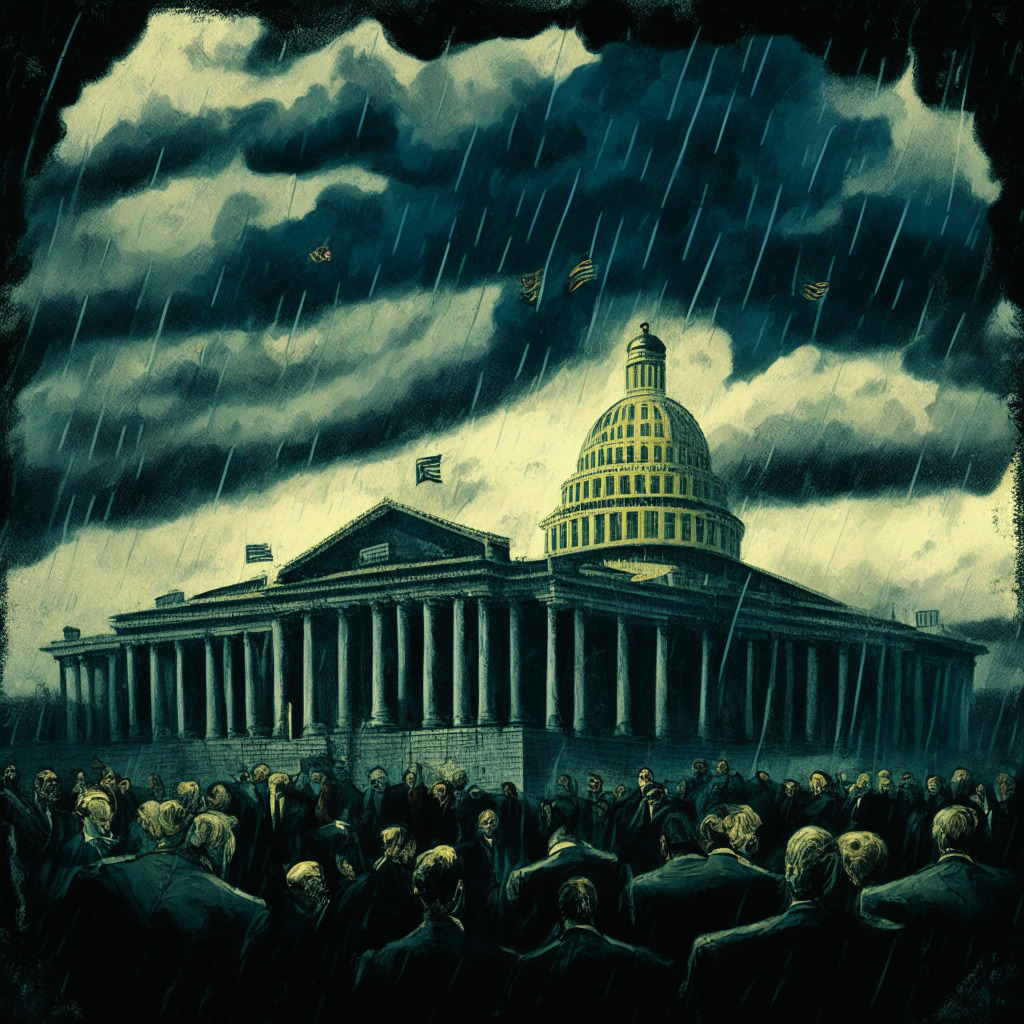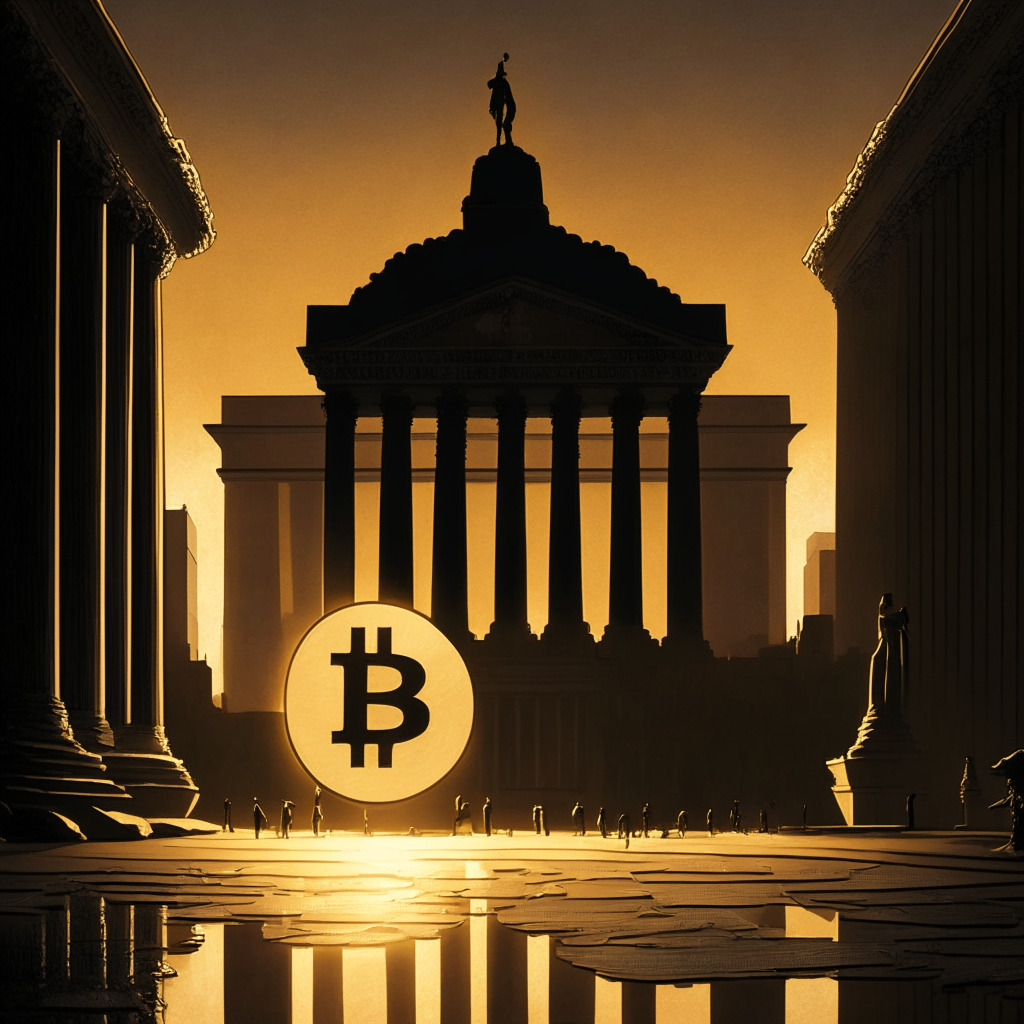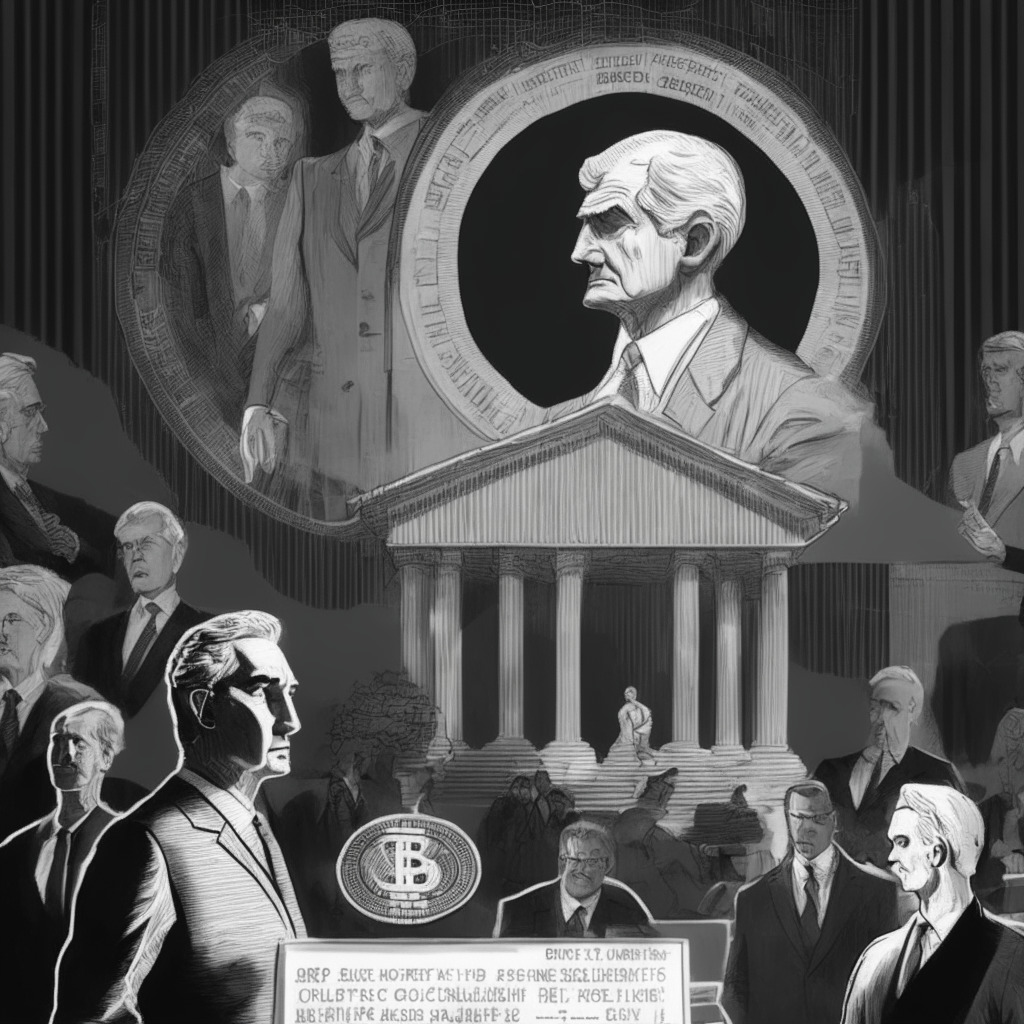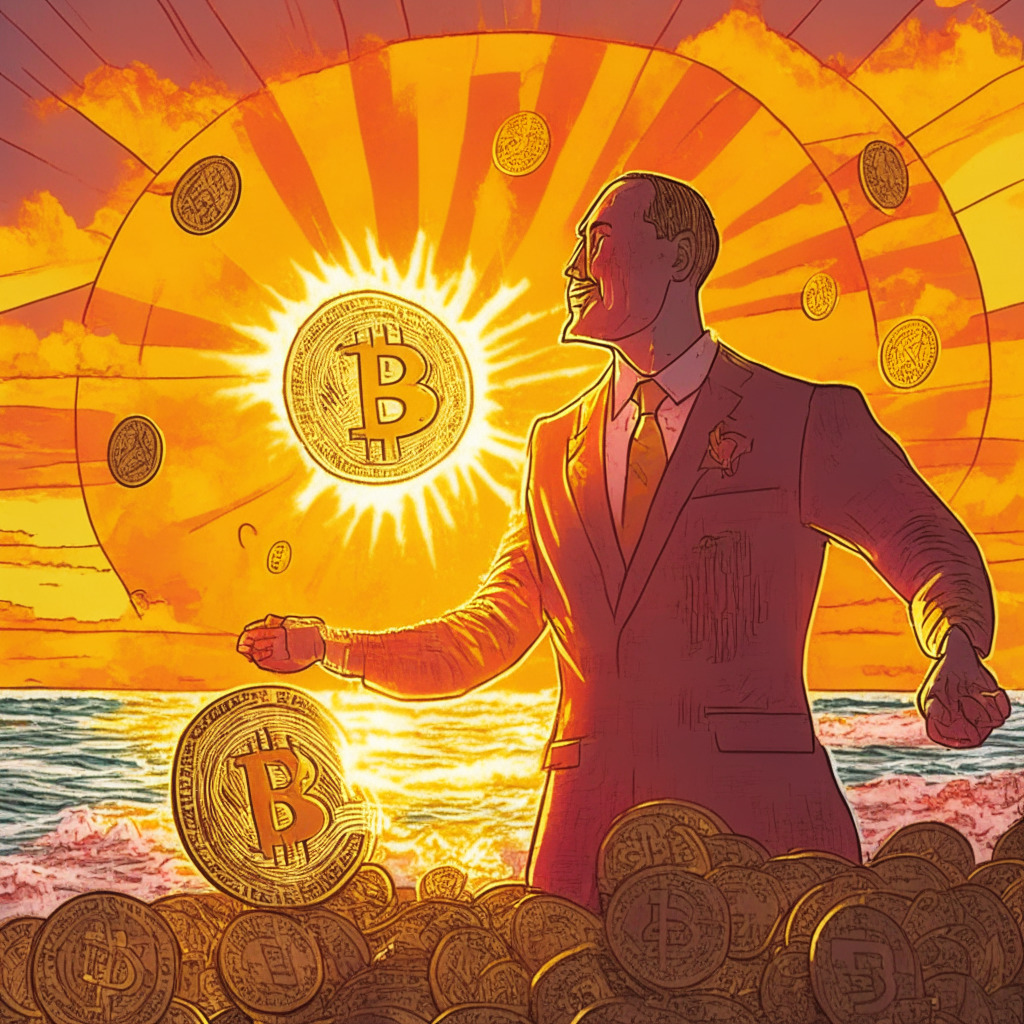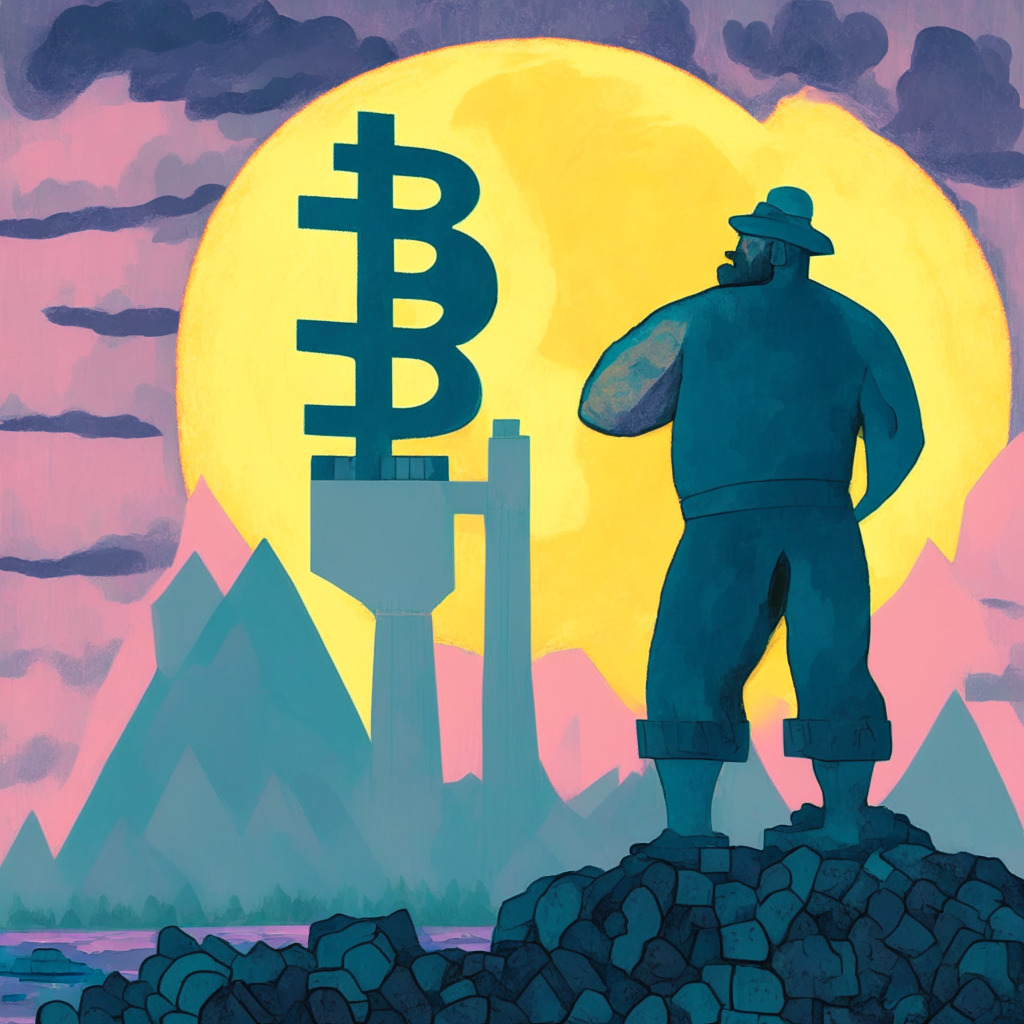“Renewed optimism over interest rate shifts resulted in a surge in Asian and European stocks, with Japan’s index leading the way. However, concerns over sustainability and the unpredictable dynamics of interest rates persist. Meanwhile, the crypto exchange Binance has frozen Hamas-linked accounts, highlighting potential issues with personal financial autonomy in blockchain technology.”
Search Results for: Fed
Inflation, Interest Rates, and the Unpredictable Balance: Unraveling the Federal Reserve’s Challenges
The recent data from U.S. Bureau of Economic Analysis shows a decrease in the core PCE inflation index to 3.9% in August, leading to positive investor sentiment. However, potential monetary policy shifts and hints of rate hikes to control inflation cause market sensitivity. Increasing energy prices and inflation uncertainties further complicate Federal Reserve’s monetary policy considerations.
Federal Reserve Concerns: Stablecoins’ Instability or the Next Financial Evolution?
“Federal Reserve Banks express concern that stablecoins could introduce instability into the financial system due to lack of standard regulatory framework. The Central Bank of Italy reinforces stablecoins’ unstability and presses for international regulatory body to govern cryptocurrencies. Despite risks, blockchain-based cross-border payments show promise of cost-effective solutions.”
Exploring the Relationship between the Federal Reserve and Bitcoin: Shifts, Correlations, and Projections
The Federal Reserve’s decisions are impacting Bitcoin, causing a 4% value decline over the week. This dip coincides with unchanged federal interest rates. Observers note an increasingly inverse correlation between Bitcoin and the U.S dollar. However, Bitcoin enthusiasts anticipate growth from potential Bitcoin ETF approval.
Navigating Bitcoin’s Rollercoaster: The Impact of Federal Reserve’s Actions and China’s Climate
Bitcoin slipped below the $27,000 mark due to potential interest rate hikes, showing a tense atmosphere in the global crypto market. However, Bitcoin’s hopes lie with the potential approval of SEC for spot Bitcoin ETFs, which could boost Bitcoin’s price by around 20%. Despite stricter capital controls and a sluggish economy in China, the country may offer an interesting solution for Bitcoin’s recent dip. The future for Bitcoin appears uncertain yet thrilling, highlighting the importance of understanding the intricate dynamics of the cryptocurrency market.
Understanding the Federal Judge’s Ruling and Blockchain Regulation in the FTX CEO’s Case
The federal judge ruled in favor of the DoJ against seven witnesses testifying for ex-FTX CEO, Sam Bankman-Fried (SBF), facing charges related to alleged misuse of user funds. This ruling raises questions on the regulation of blockchain technologies, showcasing a tug-of-war between innovators and regulatory bodies.
Crypto Market Cap Surges: Ties to Inflation Data and Federal Reserve Rates
Cryptocurrency market capitalization has risen by 1.24%, reaching $1.035 trillion as of September 14, largely due to gains in Bitcoin, Ethereum, and Solana. This increase reflects eased inflation concerns and speculation surrounding a potential pause on Federal Reserve interest rate hikes. Additionally, solid fundamentals or promising technical analysis have led to gains in other cryptocurrencies such as Hedera, Wall Street Memes, THORChain, Bitcoin BSC, and Curve DAO.
Wyoming Stablecoin: Game Changer for Federal Reserve or Risk to Monetary Stability?
“The Wyoming Stable Token Act introduces the concept of state-based unique stablecoins, raising questions about their potential to disrupt the Federal Reserve’s authority or revolutionize digital transactions. The future of such state-specific cryptocurrencies is entwined with the ongoing evolution of digital currencies.”
Federal Case Against Ex-CEO Mashinsky: Litmus Test for Crypto Regulation and Its Future
“Ex-CEO of lending giant Celsius, Alex Mashinsky, is battling an FTC case against him, arguing the allegations don’t prove fraudulent intent. Key issues involve the Gramm-Leach-Bliley Act requirements and whether Mashinsky, who had resigned, could violate the law. The outcome could set a crypto-lending regulatory precedent.”
Bitcoin Volatility Correlation Flips: Predicting Potential Declines Amid FTX and Federal Reserve Concerns
Bitcoin’s price and its 30-day implied volatility have resumed a negative correlation, hinting at expected declines. Rising volatility and falling price indicate a bias for protective measures against price slides. Concerns involve potential liquidations by FTX, monetary restrictions by the Federal Reserve, and fears of global monetary tightening. This shift in volatility trend could impact the broader crypto market.
Internet Access in Federal Jails: A Hurdle or Excuse in Sam Bankman-Fried’s Case?
The defense team of FTX founder, Sam Bankman-Fried, alleges inadequate internet access in federal jail, hindering their case preparation. This has triggered debate on the condition of technological infrastructure within correctional facilities. The DOJ however, maintains that existing internet speeds are sufficient for most review activities.
Navigating the Tightrope: Federal Oversight and the Future of Blockchain Technology
Vice Chairman of the Federal Reserve, Michael Barr, in a fintech event, emphasized the need for regulatory oversight in the swift adoption of blockchain technology. He discussed the basic research into Central Bank Digital Currency (CBDC), potential for stablecoin legislation, and the significance of balancing innovation with potential risks.
Fed’s Potential $100B Loss and Its Impact: Turmoil or Triumph for Bitcoin?
Industry analyst Marcel Pechman discusses the challenges inflation presents to the Federal Reserve and the potential financial risks of their lenient monetary strategy. He suggests these issues may lead individuals to explore secure alternatives like Bitcoin and other blockchain technologies.
Prospects and Perils: The Chicago Fed’s Optimistic Outlook vs the Global Market’s Apprehension
“Economists at the Federal Reserve Bank of Chicago suggest economic tightening’s goal may have been achieved, with implemented rate increases potentially leading to a soft landing and guiding inflation towards the 2% mark. This scenario seems particularly favorable for cryptocurrencies’ market performance, poised for a ‘goldilocks moment’.”
Navigating the Blockchain Future: The Impact of Federal Leadership Changes on Crypto Regulation
“The leadership at institutions like the Federal Reserve significantly influence policy changes, specifically cryptocurrency and blockchain regulation. While the US Federal Reserve reportedly has no plans for a digital dollar, the recent changes in leadership may significantly impact future policy. As cryptocurrencies and blockchain technology reshape financial systems, the balance between innovation and regulation remains a focus.”
AI Regulation Debate: Need for New Federal Agency versus Inherent Impossibility
A survey conducted by Axios, Generation Lab, and Syracuse University reveals diverging opinions among computer science professors regarding AI governance. While 37% propose a dedicated “Department of AI” for regulation, 16% believe Congress should handle these AI regulations. However, there’s notable skepticism about AI’s potential to replace human tasks.
Mixed Bag Future: Crypto Adoption and Skepticism Explored by World Federation of Exchanges
According to a survey by the World Federation of Exchanges, 41% of firms offer crypto services, while a third refuse due to regulatory concerns and fear of scams. Centralized exchanges record higher volumes despite higher fees, triggering skepticism about market instability and need for uniform regulations.
The Paradox of Rate Hikes: Federal Reserve Tactics, BitMEX Perspective and the Emergence of the AI-Crypto Ecosystem
In a keynote at Korea Blockchain Week, Arthur Hayes, the founder of BitMEX, argued that Federal Reserve’s tactics to combat inflation could inadvertently fuel economic growth. He also predicted the potential of AI companies and a significant asset bubble resulting from the convergence of AI, crypto, and money printing.
Federal Reserve Impacts on Bullish BTC and Ethereum’s Centralization Struggles
Arthur Hayes, former CEO and co-founder of Bitmex, anticipates a response to the BTC bull market within six to twelve months. This expectation is connected to the Federal Reserve’s $25 billion program meant to stabilize the U.S. banking system. Meanwhile, Ethereum faces challenges around the centralization of nodes and scalability.
Federal Court Pushes SEC to Reconsider Grayscale’s Bitcoin ETF Bid: A Road to Financial Future?
The federal court has compelled the U.S. SEC to reconsider its denial of Grayscale’s application to convert its Bitcoin Trust into an ETF. This may pave a smoother path for spot Bitcoin ETF adoption, providing investors the chance to delve into cryptocurrency investments minus the need to procure digital assets themselves. However, the potential market instability and the SEC’s reluctance pose remaining challenges.
Federal Court Ruling on Bitcoin ETFs: A Setback for SEC or Forward Leap for Crypto Industry?
The U.S. Securities and Exchange Commission (SEC) must reconsider its stance on bitcoin spot ETFs following a court victory by Grayscale Investments. The SEC has four options, but the course of action it takes could set a precedent for future crypto projects. It’s crucial that the SEC finds a balance between embracing cryptocurrency and ensuring investor protections, without stifling innovation.
Shackles or Safeguards? Federal Reserve’s Crypto Oversight Fuels Global Expansion
The Federal Reserve’s intensified scrutiny of banks’ cryptocurrency activities has sparked criticism from Republican lawmakers who argue this deters institutions from participating in the digital asset landscape. The Fed’s new requirements may potentially suppress the progress of decentralized finance. Amidst this, U.S. regulations on digital assets remain unclear, pushing some crypto companies to explore alternative markets overseas. The discourse focuses on balancing effective supervision with fostering blockchain innovation.
Federal Reserve’s Tightened Grip on Crypto Sparks Republican Lawmakers’ Concerns
Republican lawmakers express concerns over the Federal Reserve’s intensified oversight on crypto and stablecoin activities, arguing it might block the progress of a legislative proposal aimed at regulating stablecoins. Lawmakers believe the increased scrutiny might dissuade financial institutions from entering the digital asset ecosystem.
Fed Hikes, Bitcoin’s Resilience: A New Fiscal Paradigm in Motion
Despite potentially further interest rate hikes by the Federal Reserve, Bitcoin has remained resilient, defying analysts’ expectations. Factors like fiscal instability, growing institutional interest, and its alternative appeal amid stringent federal policies might be favoring Bitcoin, paving way for its next bull run.
Navigating the Crypto Maze Amid Federal Reserve’s Fight Against Inflation
“Jerome Powell underlined the struggle against inflation, necessitating continuous aggressive rate hikes. Amidst this, attention spiked on Bitcoin but market warnings intensify. Cryptocurrencies present potential opportunities having strong fundamentals and positive technical analyses, yet they remain a high-risk asset class.”
Bitcoin’s Future: Influenced by Federal Reserve Policies or Independent Market Stalwart?
“The co-founder of BitMEX, Arthur Hayes, shares an optimistic view of Bitcoin’s future, driven by critique of Federal Reserve’s contentious strategies. Bitcoin is seen as an antidote to banking anomalies, growing fiat liquidity, and may face potential surges or falls.”
Federal Reserve vs. Bitcoin: Predictable Paths and Uncertain Futures in Economic Stability
At the annual Federal Reserve gathering in Jackson Hole, chairman Jerome Powell’s policy foretells an uncertain economic future. This unpredictable, human-driven system contrasts with the mathematical certainty of cryptocurrencies like Bitcoin. However, the decision between fiat and cryptocurrency still lies in the hands of individual investors.
Bitcoin’s Chilly Wave: Market Effects, Reactions and Future Predictions Amid Federal Reserve Statements
The cryptocurrency market plunged as Bitcoin fell below $26,000, triggered by U.S. Federal Reserve Chair’s statements on countering inflation and possible rate hikes. Leading altcoin Solana also dipped 3%, and MKR saw a 4% decrease due to fears of a loan default. However, despite the gloomy outlook, experts like Sacha Ghebali believe the market could see an upturn if a spot bitcoin ETF is approved, offering a possible crypto market recovery.
Federal Reserve Meeting Affects Bitcoin and Ether Values: Crypto Exchange Boosts Liquidity Security
“Bitcoins remain steady as attendees anticipate Jerome Powell’s speech in Jackson Hole. Expectations are tempered, however, by Bank of America’s doubt for strong policy directives from the meeting, causing Bitcoin and Ether values to slip. Meanwhile, Binance seeks to boost liquidity security for low-liquidity token crypto projects and new stablecoin nCOP is introduced on the Polygon network in Colombia.”
Regulating Crypto – Exploring Opportunities and Risks Amidst Politics, Real Estate and Federal Policies
“Miami Mayor, Francis Suarez, continues to push for crypto adoption, advocating for Bitcoin compensation. Meanwhile, Bitcoin-powered real estate opportunities emerge in the Cayman Islands. As for Bitcoin’s future price, a potential value of $27,400 is suggested, with an optimistic rise to $30,300, or a bearish plunge to $24,100.”
Bitcoin’s Value: Fed Chair Influence and Miner Confidence Amidst Market Speculation
Amid varied opinions, Fairlead Strategies’s Katie Stockton suggests a possible return of Bitcoin’s price to the $20,000 range if it goes below a crucial support level of $25,200. The Jackson Hole Symposium, led by Federal Reserve Chair Jerome Powell, could introduce volatility in crypto markets, while miners’ confidence adds stability. Future Bitcoin value could be impacted by rate hikes or unchanged rates.
Federal Judge Allows FTX Founder In-Prison Meetings and Computer Access: A Legal Conundrum
The federal judge has allowed Sam Bankman-Fried’s legal team to visit him in prison and granted Bankman-Fried frequent computer access. Yet, the broader implications are the interaction between legal regulations and the burgeoning blockchain and crypto world.



